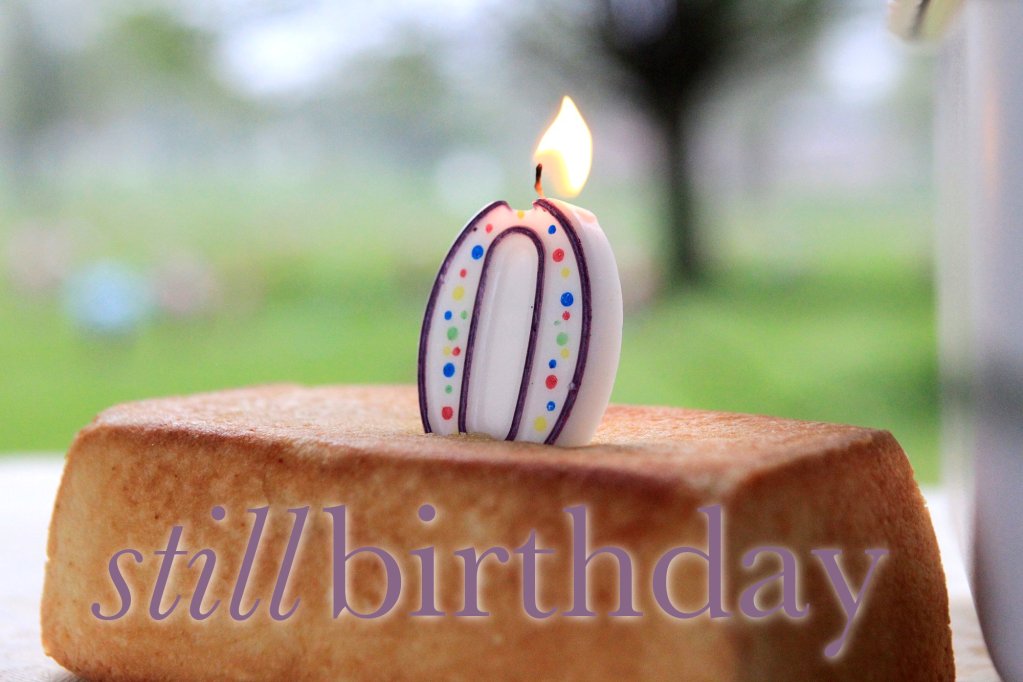The online sharing of experiences, thoughts and feelings is still a relatively new concept; Jorn Barger coined the term “weblog” in 1997, Bruce Ableson founded “Online Diary”, the first social networking site, in 1998, and it wasn’t until 1999 that blogs first became popular. Facebook launched in 2004, Twitter in 2006, and Google+ in 2011.
“The entire range of feelings, from happiness to anger to love to grief, can find an outlet online. When it comes to personal loss, some people already use social media to announce the death of a loved one, and some websites specialize in helping friends help grieving families with their practical day to day needs (preparing meals, taking the kids to school, etc.). Therefore, it is only natural that we would use social media to help us grieve as well.” -Dr. Aboujaoude (source)
“People share everything online. Files, baby photos, videos of special occasions, random thoughts, bad days, new jobs and landmarks constantly traverse the Internet.
Naturally, the web has become a place where people express one of their deepest, most painful emotions: grief.
As in real life, there’s no right or wrong way to grieve online, experts say. That expression varies, from comments on digital obituaries to tribute videos on YouTube to memorial pages on Facebook.
Ken Mueller, a social media consultant from Lancaster, said posting on a deceased loved one’s Facebook wall or creating a tribute video is similar to the way people have grieved for hundreds of years.
‘Maybe it’s the psychological equivalent of going to someone’s tombstone or burial site and leaving flowers,’ he said.
For people who live too far away to attend funerals, social media can help bring closure.
Experts say social media can be a tool to help people work through stages of grief and find support that might have been lacking before they signed on.
‘When you share your grief, the more you share, the more you heal,’ said Rhada Hartmann, director for palliative care and bereavement services at York Hospital.'” (source)
In an interview to discuss the effects of social media and today’s internet on the grieving process, Elias Aboujaoude MD, who is considered an expert on the psychological effects of Internet usage, said the following:
“Vividly revisiting the moment, such as through [remembrance videos and websites], may help us better access the emotions we experienced and how far we have, or have not, come since then.” He went on to discuss public sharing of thoughts and said, “any attempt at processing what we have been through would have to be good.”
Although much of this interview was centered on 9/11 in particular, Dr. Aboujaoude was asked if there was any downside to collectively commemorting tragic events, and gave the following response:
“People with post-traumatic stress disorder often avoid reminders of the trauma they survived, but I don’t think avoidance is the answer. I believe there is a way to commemorate what happened without getting stuck in the past. Closure is not about never looking back again. It’s about learning from what we went through in hopes of a better future.”
Dr. Aboujaoude concluded:
“The challenge is to avoid the tendency, online, to speed up and dumb down whatever we are engaged in. Grieving is complex and difficult, and it takes time, and if it feels simple, easy or more efficient online, then maybe we are diminishing the process somehow.”
From Beaumont Enterprise, in an article written about a grieving mother:
“It might take a village to raise a child, but it takes twice that to bury one.
Despite the fact that everyone grieves in their own way, mental health professionals have long been aware of the importance human interaction plays for those suffering a traumatic loss.
With new technology comes new ways to contribute to the healing of others.
While learning about her daughter’s life, she learned a valuable lesson about dealing with her death: As isolated as Ratcliff feels, she will never be alone in her grief.
On her blog, which anyone can read, Ratcliff said she found a way to express the feelings that had begun to overwhelm her every day.
‘I didn’t want to have to hear myself say the words,’ Ratcliff said. ‘But to type it out, to have that outlet, has been so healing.'”
Ratcliff, the bereaved mother, said this about grieving: “It’s not a process; it’s a new way of living. It’s almost like living a new life. This is what I will do the rest of my life.”
Chuck Oliff, a licensed professional therapist, who was interviewed for the same article, said this about social media’s effect on grief:
“It’s been very helpful for healing, a lot of reminiscing, a lot of talking, a lot of reconnecting. More than anything else, I think it’s just about communicating thoughts and feelings.”
The article continues:
“While everyone experiences grief in different ways, Oliff said, after a major loss, many find comfort in having a constant outlet for their feelings. While individual and group therapy can help, therapists, counselors and pastors aren’t always available during a person’s loneliest and most trying hours.
That’s where social media fits in. ‘It gives people a chance to reach out without feeling like they’re intruding,’ said Tom Broussard, a funeral director at Broussard’s.”
There are, however, risks and downfalls with online grieving:
- ‘No matter how much people grieve together on social media, the act of coming together is of the utmost importance when it’s time to say goodbye. One of the things God gave us is that the edge of that knife gets a little duller as time goes by. And at the end of the day, the thing that’s most effective is that personal touch, that personal hug,” (source) Unfortunately, even brief encounters online can be etched in time, cruelly blaming bereaved persons for moments of strong emotion and binding them in a sense of unforgiveness and bondage when they are already bereaved.
- It’s not for everyone. What may work well for one parent may not work at all for the other.
- You can become overly committed to the responses and updates of others you are communicating with online, and neglect your other needs or the needs of other loved ones.
- Others online may not realize just how much you are hurting.
- You can get bad advice, or even be manipulated through your grief.
- Your words are etched in time and what you may be expressing while experiencing one aspect of grief can seem foreign to you while in another aspect of your grief, and you may wish that your sentiments or expressions were not only remembered, but not used to harm or haunt you.
In conclusion:
Social media and the internet serve as unique and particularly useful tools to help navigate grief. It provides a way to express things that often seem unspeakable. It keeps people remain in contact and stay updated, particularly those who cannot be present, such as attending a funeral. It allows people the ability to share ideas and provide encouragement. However, it can store feelings and situations long after you’ve worked through them, and can serve to be a sour reminder of times you’ve stumbled in your grief. You might share expressions that you later regret. You can receive bad advice or become frustrated by others sharing bad advice with you (or others). You can be easily vulnerable or easily manipulated. Trying to discern which is the most important issue, staying the path of working through your feelings, or giving someone else attention for their poor judgement and misinformation can become frustrating (the same, however, is true in our physical interactions or in the “real world”).
Stillbirthday offers advice for social media leaders in how to approach bereavement online, and we ask parents to use caution and discernment for these reasons, as we seek to promote harmonious and healing communication through our program and comments and stories are edited as best as possible for unproductive content.
Please visit our submission information on contributed content to see the ways in which stillbirthday facilitates healthy and positive outlets for communication, and protection from some of the negatives that can come with online grieving.
Grieving families, stillbirthday hopes you see the value of online grieving, but as this is a very new issue, I ask that you protect yourself with discretion in the things you say, and that you prepare to offer grace and forgiveness to those who do not communicate with you as they should, as many online users simply do not understand the struggles faced by our bereaved community. Please also be prepared and willing to forgive yourselves as you stumble on this journey in healing.
Stillbirthday serves to provide support to families experiencing loss and navigating their grief. In addition, we seek to provide information, education, and awareness to those not impacted by pregnancy or infant loss. We too use social media, this website (obviously) and other online platforms to raise awareness and provide useful information. Please visit our “Outside Insight” collection of articles to gain more understanding of issues regarding pregnancy and infant loss, in addition to the rest of our website.
Regarding Online Photography:
- When sharing photos online, consider that you are doing so likely to raise awareness to the inherent worth of your baby.
- Drawing from that perspective, it can be helpful to consider what most people are most attracted to visually, and to present your baby’s photo in a way that best aligns with that.
- It can be helpful to consider that generally, most people are visually drawn to photography that has been captured with professional level skill.
- When sharing your photo online, it can be helpful to know that there is a prevalence to misuse or even steal photos. By first opening your photo in a “paint” or similar program, you can size it down until you can open a script window, and type your name into the photo. This is a very simple way of marking your photo, or ask your photographer to include a marking. Consider marking the photo in a prevalent, pervasive way. Save your file as a new name, otherwise your edited version will replace the original!
- Your professional photographer should be respectful of your ability of sharing your own story authentically and originally, and should not publish your photos before you do or without your express, written permission to do so.











Leave a Comment